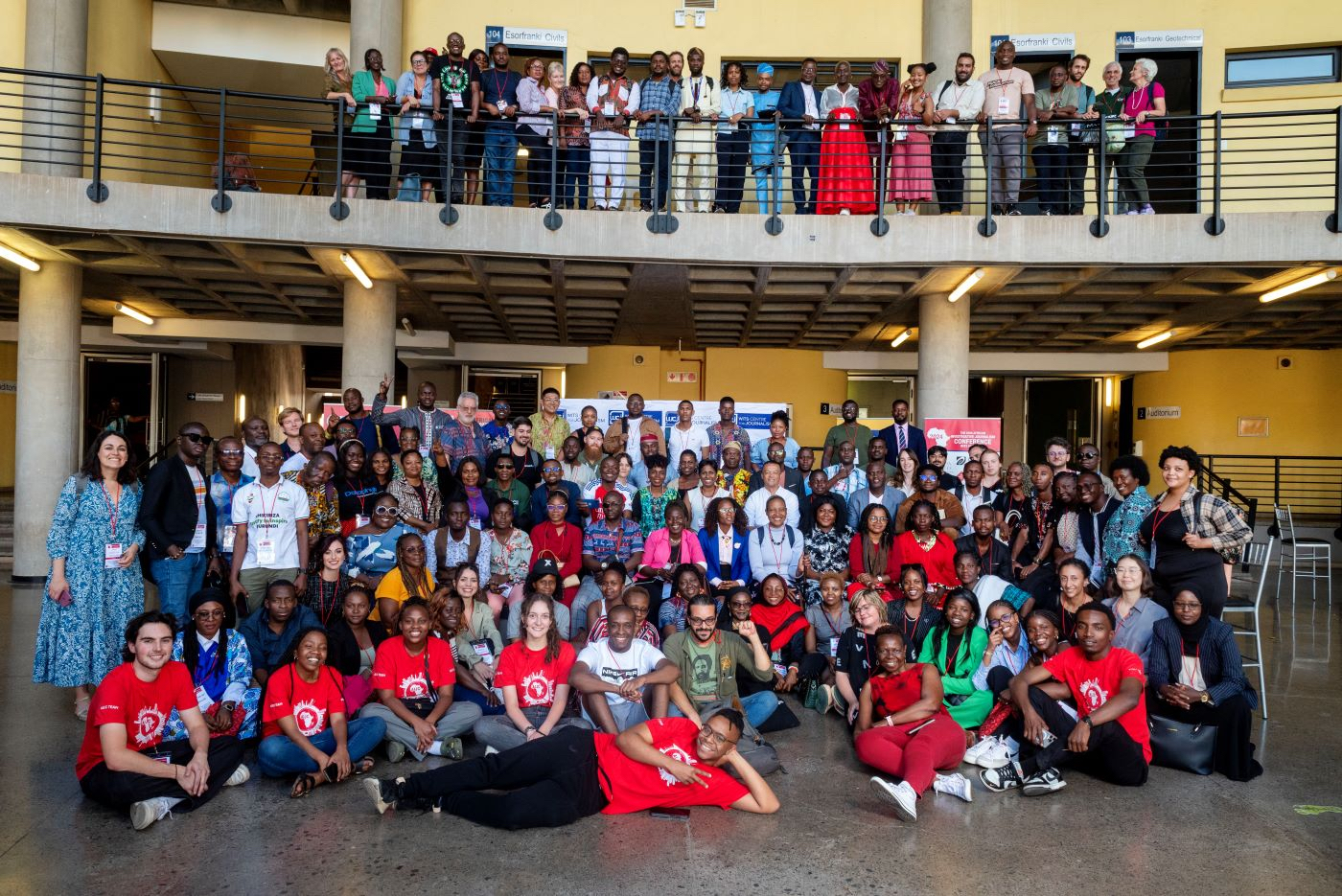Investigative journalists discuss challenges at continental conference
“But isn’t it better to have a dictatorship-with-development, like in Rwanda”, asks an audience member during the Rwanda Classified panel on Day 1 of the African Investigative Journalism Conference, held in Johannesburg, South Africa, from 30 October to 1 November. “Where I work in West Africa, people would give a dear thing to have development, even if the government is authoritarian.” Rwanda Classified, a cross-continental investigation coordinated by Forbidden Stories, has highlighted suspicions that Rwanda's authoritarian government may be behind dozens of unnatural deaths of journalists and critics.
The responses of the panel—including a member of the ZAM team that contributed the intra-African report on the subject—are unambiguous. “Rwanda fiddles the numbers,” says author and Rwanda expert Michela Wrong. “That development is highly exaggerated.” ZAM team coordinator Evelyn Groenink adds that African, as well as Western, reporters who have set foot outside Rwanda’s pristine and shiny capital, Kigali, still report hunger. The East African ZAM team member explains the fear that engulfs ordinary people, not only in Rwanda but in the entire East African region. “They shoot you in broad daylight if they see you as a rival to dictator Paul Kagame, or an influential critic.”
It is a sad irony that East Africa’s small ZAM team, part of the large Rwanda Classified project involving 17 media houses across 11 countries, gains its spotlight at a conference for African investigative journalists, yet ZAM’s team leader cannot be photographed or use his real name. Even sadder, he is not alone. Each year at this conference, held in Johannesburg, the number of colleagues who choose to publish anonymously, cannot attend because they are in jail, or are unable to apply for a visa due to exile in neighbouring countries, increases.
For instance, Hotel Kremlin a ZAM project that, with reporters working undercover and using pseudonyms, investigated military junta rule in Sahel countries, has led to the exile of Malick Coulibaly*. Scheduled to present the project at this very conference, Malick was unable to obtain a visa for South Africa, and as a result, his presentation was cancelled.
Many courageous colleagues did, however, manage to attend. At the conference, the ZAM team reconnects with long-missed members of the NAIRE network, such as John-Allan Namu, Cynthia Gichiri, Emmanuel Chenze, and Joy Kirigia of Africa Uncensored. They are presenting their investigation into fake fertilizer, which, with government complicity, victimised thousands of farmers; and their documentary exposing how a PR firm promoting pesticides was given US development funds to profile African critics of industrial agriculture. NAIRE executive member Anas Aremeyaw Anas shares the stories of whistleblowers and journalists whom he and his colleagues shelter through his protective project, WAJSIC, in Ghana, while continuing investigations that hold the powerful to account.
This effort lies at the heart of the ‘Africa No Filter’ session, where colleagues present work that has fueled protests and driven change. Their agency in reporting on global and local injustices, while offering fresh perspectives, illuminates a path forward for African countries and counters the stereotypical doom and gloom that continues to dominate much of the reporting on the continent.
The message "listen to us" is particularly evident in the North-South collaborative session, where African journalists explain to their colleagues from the Global North—who seek joint projects on themes such as multinationals, development aid, and migration—that greater equality is needed in these partnerships. "Don’t come here to make us work for your stories for little money," they assert, "and let’s first discuss what the stories are, because sometimes we know more than you."
That they do know a great deal about Africa’s exploitative systems—maintained by both kleptocratic political elites and geopolitical vultures focused on the continent’s natural wealth—is once again evident in the stories that win awards during this conference: a data report on the astounding numbers of trees smuggled out of East Africa; a series highlighting a parasitic company which, in cahoots with state officials, siphoned millions of dollars of oil money from Ghanaian state coffers; an investigation into the role played by the state of Eswatini in illicit financial flows globally; and the lack of accountability faced by British troops stationed in Kenya.
They know more, they are incredibly brave, and they deserve support if there is to be meaningful change on the African continent.
Call to Action
ZAM believes that knowledge should be shared globally. Only by bringing multiple perspectives on a story is it possible to make accurate and informed decisions.
And that’s why we don’t have a paywall in place on our site. But we can’t do this without your valuable financial support. Donate to ZAM today and keep our platform free for all. Donate here.


